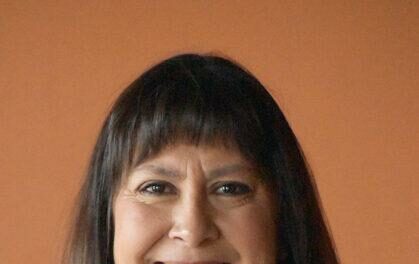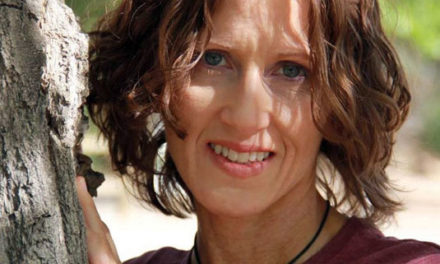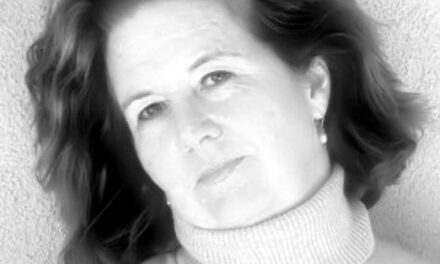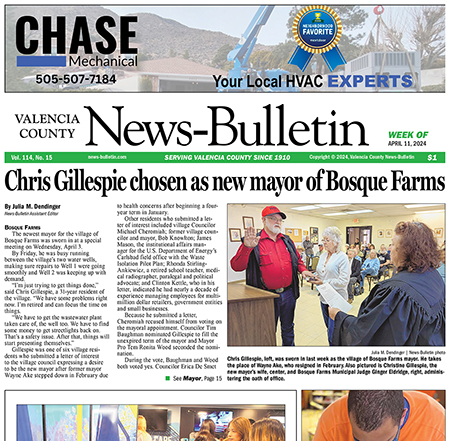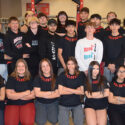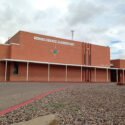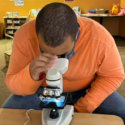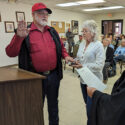Several weeks ago, teen activist Greta Thunberg passionately addressed leaders around the globe at the U.N. Climate Summit in New York City.
She called them out for, among many things, their collective failure to confront the ideological, social and political machinery of capitalism — the “fairytale of eternal economic growth” — which is hurtling humanity and the millions of species with which we share this earth toward a gravely imperiled future.

Clara Sims
If our course does not alter, extinction looms just over the horizon of this century for far too many — not to mention the threat of social and political chaos in a world of severely depleted resources which looms much closer.
Not being much older than Greta myself, her heartfelt words and righteous anger echoed strongly my own thoughts, beliefs and feelings. Especially when, at a Valencia County Planning and Zoning meeting, I heard the same acquiescence to a narrative of inevitable, “eternal economic growth” for our county.
I know I am not alone when I say the development on the west side of Los Lunas over the past several years into a fast-food, outlet store “utopia” greatly saddens me. Why do we think “eternal economic growth” is inevitable? Why do we so easily roll over to the logic of endless corporate expansion (greed) as though it is some natural law of our universe? It isn’t.
We live on a planet of finite and limited resources. We always have and we always will. Capitalism is a human-made, neither natural nor divinely mandated, way of organizing our body-politic that, in its present form, blatantly disregards the real natural law of human and ecological limitations.
For most of human history (300,000 years), we have not been capitalists. We have built this system and we choose to participate in it every single day. Thus, to argue the logic of its inevitability in perpetuity as the only possible model for our economic architecture strikes me as an un-examined conclusion, not to mention a dangerous one.
When I say dangerous, I do not believe most “capitalists,” as those who believe capitalism is the best and most appropriate economic system, intend to do harm to people or the planet. But the truth is that I, as a 22 year old just entering the job market, envisioning a stable and secure environment in which to have and raise a family, do not want and definitely do not need another corporate-owned doughnut shop or outlet mall built on N.M. 47.
Corporate expansion will not help secure my material future, nor will it bring desirable jobs to this community.
What I and all up-and-coming generations of New Mexicans need is for us all to have a conversation about a model of economic growth not focused on expansion for expansion’s sake, but instead upon a more robust and resilient economy that will secure the livelihoods of Valencia County residents into an uncertain and imperiled future.
As American essayist and farmer Wendell Berry writes, “We must learn again to ask how we can make the most of what we are, what we have, what we have been given” rather than yearn for the impossibility of limitless wealth (consumption), power, and youth which so captivate our media driven world.
To me, taking stock of “what we are” and “what we have been given” means preserving our agricultural land and cultural heritage as land-based peoples because I could go anywhere in America to find a strip mall full of chain stories, but I can only come here, to Valencia County, to find the peace and beauty of fields silhouetted by Tomé Hill, the Manzano Mountains to the east and Ladron to the west.
To me, it means, yes — I do think it makes more sense to leave an alfalfa field as an alfalfa field rather than turn it into a commercial development because we live on a planet of rapidly dwindling resources in which we will soon remember that our capacity to grow food and feed our community is our most vital and precious responsibility.
To me, it means re-envisioning an economy in which farmers have a chance to make not just a living, but rather a livelihood so they don’t have to live paycheck-to paycheck as if their jobs aren’t among the most essential that will ever exist.
To me, it means facing the hard reality that creating more minimum-wage (non-living wage) jobs in our community is not a victory of economic development nor a solution to the very real economic needs and struggles of this community.
To me, it means prioritizing that our children’s education includes teaching them about the natural landscapes they are embedded within — the bosque and the Rio Grande — so that we may help them do the work we should have already done: to re-imagine and re-build an economy that is more ecologically and socially just than the one we live in and continue to promote.
In the words of David James Duncan, “Life itself sometimes hangs by a thread made of nothing but the spirit in which we see.”
I choose to see that our lives are not governed by the expansion of corporate America, but by the deep roots and bonds of love we have for one another, this community, this culture, this place, its future … and this, to me, is better than any fairy tale of unending, impossible, and limitless growth.
(Clara Sims is from and lives in Los Lunas. She has a B.A. in history and religious studies, and works with N.M. Interfaith Power and Light.)

